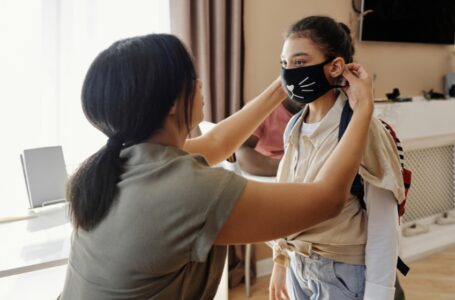Here’s all you need to know about the Coronavirus
The COVID-19 pandemic has turned the world upside down. The public healthcare system is facing the biggest challenge in trying to flatten the curve, scientists are trying their level best to come up with viable solutions for the crisis, the world economy is facing stasis in a long time, and everyone is worried about how things will get better. Here’s all you need to know about the Coronavirus:
During the winter months, everyone needs to be more cautious. Coronavirus thrives mostly in cold air which makes crammed airconditioned places a breeding spot.
The symptoms have a rather wide range. The most common ones are dry cough and fever, but it also includes diarrhea, conjunctivitis, loss of taste or smell, vomiting, skin rashes, and discolouration of fingers tips.

There is a reason why wearing a mask and sanitising your hands is essential. You can easily get infected by touching your eyes, mouth, and nose too often with dirty hands.
There is a lot of research happening about the carriers and how the virus spreads. On the surface, it appears that some people are more prone to getting infected and spreading COVID-19 than others.
Your body’s immune system is equipped to battle any virus, and some people can develop “a hyperactive immune response”. This battle can give rise to some severe symptoms that the body may not be able to cope with. Corticosteroids, which is a treatment for suppressing the immune system could be a possible solution to this condition, but researchers are working on this angle.
There are almost thirty coronavirus vaccines that are already in the trial phase in various parts of the world.
COVID-19 harms not only the lungs but also affects other body parts such as the heart, liver, kidneys, and the nervous system.
Prof Dale Godfrey from the Doherty Institute has revealed that people who have already developed an immunity to the virus are not safe from another attack. The temporary immunity does not last very long, and the symptoms can resurface.
Prof Trevor Drew, director of the Australian Centre for Disease Preparedness, said that the scientists had predicted something similar to the COVID-19 outbreak a long time ago. Still, the matter was not given much importance.

How to stay alert:
With time, more specific symptoms of the COVID-19 infection have been identified by the doctors across the globe. Initial studies only pointed towards lung diseases, but now the list is relatively long. The most common symptoms are fever, dry cough, and fatigue. These are quite similar to flu but should not be taken casually. Other symptoms that are not as common are body ache, sore throat, diarrhea, conjunctivitis, headache, rashes on the skin, and discolouration of fingers. Losing the sense of taste or smell is another symptom that is becoming more common with time. If you are facing difficulty in breathing or feeling some pressure in your chest, it is crucial to visit a hospital. Feeling immobile is another severe symptom.
It is no doubt that this period of uncertainty and stress is taking a toll on everyone’s mental health. It is, however, important to not give in to fake news and take necessary precautions.





